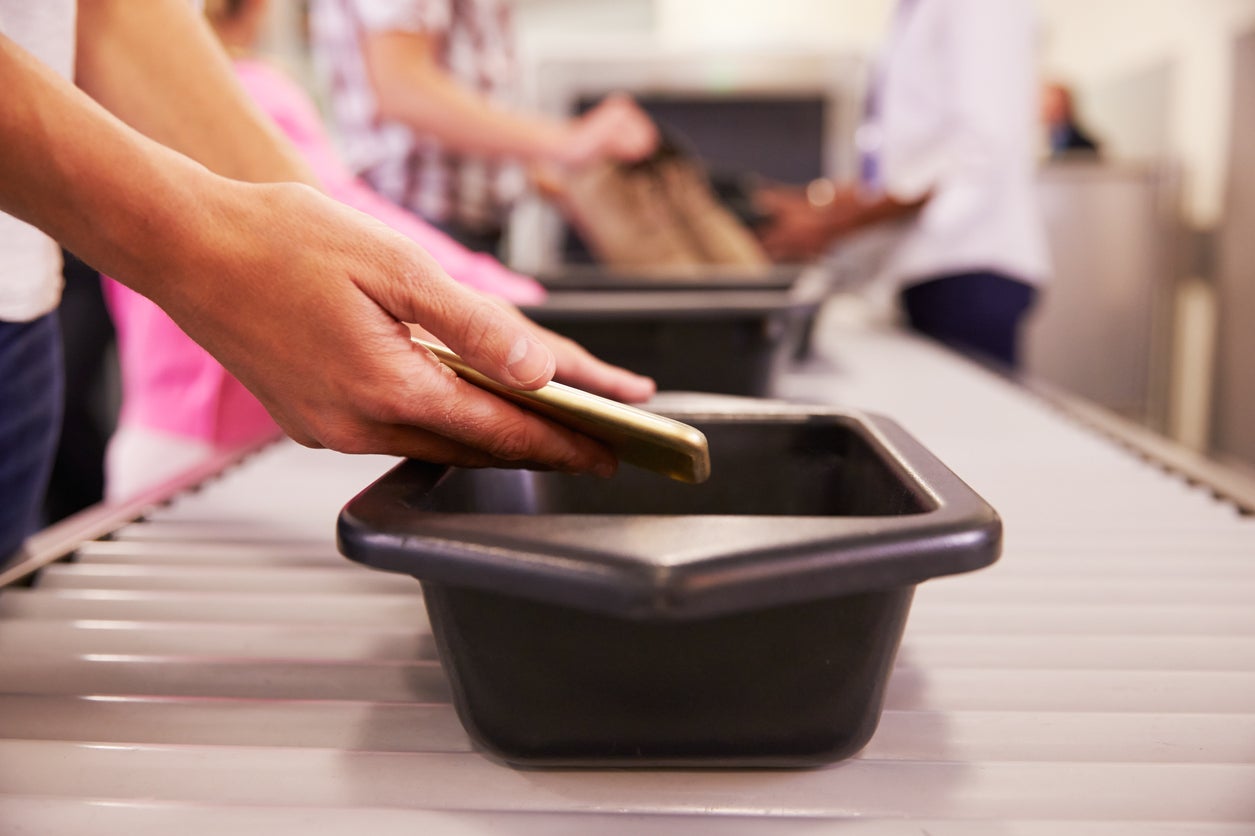Airport security trays have more viruses than public toilets, says study
Research found the trays ‘pose the highest potential risk’

Plastic trays at airport security have more respiratory viruses than public toilets, according to recently published research.
The study, called Deposition of respiratory virus pathogens on frequently touched surfaces at airports, was based on 90 surface samples and four air samples collected at Helsinki-Vantaa airport over the course of three weeks in 2016.
Samples were collected weekly at three different times of day from various points along the passenger journey, from handrails on escalators and lift buttons to trolley handles and toys in the children’s play area.
Of the samples tested, security trays were found to pose the highest potential risk of viral contamination, with four of eight samples testing positive. Respiratory viruses detected on the trays included deno, influenza A, rhino and human corona OC43.
In comparison, of the 42 samples taken from three areas in the airport’s public toilets – the toilet bowl lid, the flush and the lock – none contained any detectable respiratory viruses.
According to the study, as the trays are used by virtually all passengers, “they have the potential to be especially problematic if a severe pathogen with an indirect transmission mechanism were to pose a threat for international spread.”
Overall, at least one respiratory virus was detected in nine surface samples – 10 per cent in total.
The study made recommendations for stopping the spread of disease at airport security areas.
“The risk of this procedure could be reduced by offering hand sanitization with alcohol handrub before and after security screening, and increasing the frequency of tray disinfection,” it said. “To our knowledge, security trays are not routinely disinfected.
“Although this would not eliminate all viruses on hands, (e.g. alcohol gels have been found to be less effective than hand-washing for rhinovirus), it is effective for many viruses, including influenza.”
According the study, the rise in air travel has increased the likelihood of infectious diseases spreading rapidly between countries and continents – for example, the swift spread of Severe Acute Respiratory Syndrome (SARS) from Hong Kong to several countries in a short space of time in 2003.
It concludes that these findings stress the need to investigate the role of various traffic hubs in transmission of respiratory viruses, including airports, ports and underground stations.
Subscribe to Independent Premium to bookmark this article
Want to bookmark your favourite articles and stories to read or reference later? Start your Independent Premium subscription today.

Join our commenting forum
Join thought-provoking conversations, follow other Independent readers and see their replies